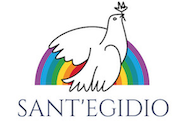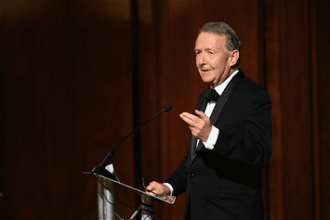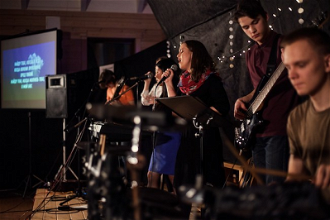Encyclical: 'Ecclesia de Eucharistia'
Source: VIS
This afternoon, during the Mass of the Lord's Supper, Pope John Paul II signed the Encyclical Letter 'Ecclesia de Eucharistia' To the Bishops, Priests and Deacons, Men and Women in the Consecrated Life and All the Lay Faithful on the Eucharist and Its Relationship to the Church.
This encyclical, John Paul II's 14th, consists of an introduction, six chapters and a conclusion. It has been published in English, French, Spanish, Italian, German, Portuguese and Latin.
Following are excerpts: INTRODUCTION "The Church draws her life from the Eucharist. This truth does not simply express a daily experience of faith, but recapitulates the heart of the mystery of the Church."
"From the time I began my ministry as the Successor of Peter, I have always marked Holy Thursday, the day of the Eucharist and of the priesthood, by sending a letter to all the priests of the world. This year, the twenty-fifth of my Pontificate, I wish to involve the whole Church more fully in this Eucharistic reflection, also as a way of thanking the Lord for the gift of the Eucharist and the priesthood: "Gift and Mystery." ...
"How could I not feel the need to urge everyone to experience it ever anew"
"The Eucharist, as Christ's saving presence in the community of the faithful and its spiritual food, is the most precious possession which the Church can have in her journey through history."
"Certainly the liturgical reform inaugurated by the Council has greatly contributed to a more conscious, active and fruitful participation in the Holy Sacrifice of the Altar. ... The devout participation of the faithful in the Eucharistic procession on the Solemnity of the Body and Blood of Christ is a grace from the Lord which yearly brings joy to those who take part in it."
"Alongside these lights, there are also shadows. In some places the practice of Eucharistic adoration has been almost completely abandoned. In various parts of the Church abuses have occurred, leading to confusion with regard to sound faith and Catholic doctrine concerning this wonderful sacrament.
"At times one encounters an extremely reductive understanding of the Eucharistic mystery. Stripped of its sacrificial meaning, it is celebrated as if it were simply a fraternal banquet.
"Furthermore, the necessity of the ministerial priesthood, grounded in apostolic succession, is at times obscured and the sacramental nature of the Eucharist is reduced to its mere effectiveness as a form of proclamation. This has led here and there to ecumenical initiatives which, albeit well-intentioned, indulge in Eucharistic practices contrary to the discipline by which the Church expresses her faith.
"How can we not express profound grief at all this The Eucharist is too great a gift to tolerate ambiguity and depreciation. It is my hope that the present Encyclical Letter will effectively help to banish the dark clouds of unacceptable doctrine and practice, so that the Eucharist will continue to shine forth in all its radiant mystery."
I. MYSTERY OF THE FAITH
"When the Church celebrates the Eucharist, the memorial of her Lord's death and resurrection, this central event of salvation becomes really present and 'the work of our redemption is carried out'... Mystery: a great mystery, a mystery of mercy. What more could Jesus have done for us Truly, in the Eucharist, he shows us a love which goes 'to the end', a love which knows no measure."
"The Mass makes present the sacrifice of the Cross; it does not add to that sacrifice nor does it multiply it. The sacrificial nature of the Eucharistic mystery cannot therefore be understood as something separate, independent of the Cross or only indirectly referring to the sacrifice of Calvary."
II. THE EUCHARIST BUILDS THE CHURCH
"Eucharistic communion also confirms the Church in her unity as the body of Christ."
"The worship of the Eucharist outside of the Mass is of inestimable value for the life of the Church. This worship is strictly linked to the celebration of the Eucharistic Sacrifice. The presence of Christ under the sacred species reserved after Mass a presence which lasts as long as the species of bread and of wine remain - derives from the celebration of the sacrifice and is directed towards communion, both sacramental and spiritual. It is the responsibility of Pastors to encourage, also by their personal witness, the practice of Eucharistic adoration, and exposition of the Blessed Sacrament in particular, as well as prayer of adoration before Christ present under the Eucharistic species. ...
How can we not feel a renewed need to spend time in spiritual converse, in silent adoration, in heartfelt love before Christ present in the Most Holy Sacrament How often, dear brother and sisters, have I experienced this, and drawn from it strength, consolation and support!"
III. THE APOSTOLICITY OF THE EUCHARIST AND OF THE CHURCH
"It is in continuity with the practice of the Apostles, in obedience to the Lord's command, that the Church has celebrated the Eucharist down the centuries."
"The ministry of priests who have received the sacrament of Holy Orders, in the economy of salvation chosen by Christ, makes clear that the Eucharist which they celebrate is a gift which radically transcends the power of the assembly and is in any event essential for validly linking the Eucharistic consecration to the sacrifice of the Cross and to the Last Supper." "The assembly gathered together for the celebration of the Eucharist, if it is to be a truly Eucharistic assembly, absolutely requires the presence of an ordained priest as its president. On the other hand, the community is by itself incapable of providing an ordained minister. This minister is a gift which the assembly receives through episcopal succession going back to the Apostles."
"The Catholic faithful, therefore, while respecting the religious convictions of these separated brethren, must refrain from receiving the communion distributed in their celebrations, so as not to condone an ambiguity about the nature of the Eucharist and, consequently, to fail in their duty to bear clear witness to the truth. This would result in slowing the progress being made towards full visible unity. Similarly, it is unthinkable to substitute for Sunday Mass ecumenical celebrations of the word or services of common prayer with Christians from the aforementioned Ecclesial Communities, or even participation in their own liturgical services. Such celebrations and services, however praiseworthy in certain situations, prepare for the goal of full communion, including Eucharistic communion, but they cannot replace it."
"The Eucharistic Sacrifice ... is the centre and root of the whole priestly life. We can understand, then, how important it is for the spiritual life of the priest, as well as for the good of the Church and the world, that priests follow the Council's recommendation to celebrate the Eucharist daily," where they find "the true centre of their lives and ministry the spiritual strength needed to deal with their different pastoral responsibilities. Their daily activity will thus become truly Eucharistic."
"The centrality of the Eucharist in the life and ministry of priests is the basis of its centrality in the pastoral promotion of priestly vocations." Christ often serves as "the example of a priest's fervent pastoral charity which the Lord uses to sow and to bring to fruition in a young man's heart the seed of a priestly calling."
"When, due to the scarcity of priests, non-ordained members of the faithful are entrusted with a share in the pastoral care of a parish, they should bear in mind that as the Second Vatican Council teaches no Christian community can be built up unless it has its basis and centre in the celebration of the most Holy Eucharist. They have a responsibility, therefore, to keep alive in the community a genuine 'hunger' for the Eucharist, so that no opportunity for the celebration of Mass will ever be missed, also taking advantage of the occasional presence of a priest who is not impeded by Church law from celebrating Mass."
IV. THE EUCHARIST AND ECCLESIAL COMMUNION
"The Church is called during her earthly pilgrimage to maintain and promote communion with the Triune God and communion among the faithful. For this purpose she possesses the word and the sacraments, particularly the Eucharist, by which she 'constantly lives and grows' and in which she expresses her very nature. It is not by chance that the term communion has become one of the names given to this sublime sacrament."
"The celebration of the Eucharist, however, cannot be the starting-point for communion; it presupposes that communion already exists, a communion which it seeks to consolidate and bring to perfection. ... both in its invisible dimension, which ... unites us to the Father and among ourselves, and in its visible dimension, which entails communion in the teaching of the Apostles, in the sacraments and in the Church's hierarchical order."
"Invisible communion, though by its nature always growing, presupposes the life of grace, by which we become 'partakers of the divine nature', and the practice of the virtues of faith, hope and love."
"The Catechism of the Catholic Church rightly stipulates that 'anyone conscious of a grave sin must receive the sacrament of Reconciliation before coming to communion'. I therefore desire to reaffirm that in the Church there remains in force, now and in the future, the rule by which the Council of Trent gave concrete expression to the Apostle Paul's stern warning when it affirmed that, in order to receive the Eucharist in a worthy manner, 'one must first confess one's sins, when one is aware of mortal sin'."
"The judgment of one's state of grace obviously belongs only to the person involved, since it is a question of examining one's conscience. However, in cases of outward conduct which is seriously, clearly and steadfastly contrary to the moral norm, the Church, in her pastoral concern for the good order of the community and out of respect for the sacrament, cannot fail to feel directly involved. The Code of Canon Law refers to this situation of a manifest lack of proper moral disposition when it states that those who 'obstinately persist in manifest grave sin' are not to be admitted to Eucharistic communion."
"Ecclesial communion, as I have said, is likewise visible. ... The Eucharist, as the supreme sacramental manifestation of communion in the Church, demands to be celebrated in a context where the outward bonds of communion are also intact. ... It requires that the bonds of communion in the sacraments, particularly in Baptism and in priestly Orders, be real. It is not possible to give communion to a person who is not baptized or to one who rejects the full truth of the faith regarding the Eucharistic mystery." "Furthermore, it must be recalled that 'the Eucharistic Sacrifice, while always offered in a particular community, is never a celebration of that community alone'. ... The ecclesial communion of the Eucharistic assembly is a communion with its own Bishop and with the Roman Pontiff."
"The Eucharist creates communion and fosters communion."
"The Eucharist's particular effectiveness in promoting communion is one of the reasons for the importance of Sunday Mass. ... in my Apostolic Letter on the sanctification of Sunday Dies Domini. I recalled that the faithful have the obligation to attend Mass, unless they are seriously impeded, and that Pastors have the corresponding duty to see that it is practical and possible for all to fulfil this precept."
"In considering the Eucharist as the sacrament of ecclesial communion, there is one subject which, due to its importance, must not be overlooked: I am referring to the relationship of the Eucharist to ecumenical activity."
"Precisely because the Church's unity, which the Eucharist brings about through the Lord's sacrifice and by communion in his body and blood, absolutely requires full communion in the bonds of the profession of faith, the sacraments and ecclesiastical governance, it is not possible to celebrate together the same Eucharistic liturgy until those bonds are fully re-established. Any such concelebration would not be a valid means, and might well prove instead to be an obstacle, to the attainment of full communion, by weakening the sense of how far we remain from this goal and by introducing or exacerbating ambiguities with regard to one or another truth of the faith. The path towards full unity can only be undertaken in truth. In this area, the prohibitions of Church law leave no room for uncertainty,in fidelity to the moral norm laid down by the Second Vatican Council."
"While it is never legitimate to concelebrate in the absence of full communion, the same is not true with respect to the administration of the Eucharist under special circumstances, to individual persons belonging to Churches or Ecclesial Communities not in full communion with the Catholic Church. In this case, in fact, the intention is to meet a grave spiritual need for the eternal salvation of an individual believer, not to bring about an intercommunion which remains impossible until the visible bonds of ecclesial communion are fully re established."
V. THE DIGNITY OF THE EUCHARISTIC CELEBRATION
"The Eucharistic Banquet is truly a 'sacred' banquet, in which the simplicity of the signs conceals the unfathomable holiness of God: O sacrum convivium, in quo Christus sumitur!"
"With this heightened sense of mystery, we understand how the faith of the Church in the mystery of the Eucharist has found historical expression not only in the demand for an interior disposition of devotion, but also in outward forms meant to evoke and emphasize the grandeur of the event being celebrated. This led progressively to the development of a particular form of regulating the Eucharistic liturgy, with due respect for the various legitimately constituted ecclesial traditions."
"The designs of altars and tabernacles within Church interiors were often not simply motivated by artistic inspiration but also by a clear understanding of the mystery. ... Similarly, can we overlook the enormous quantity of artistic production, ranging from fine craftsmanship to authentic works of art, in the area of Church furnishings and vestments used for the celebration of the Eucharist ... Within this context of an art aimed at expressing, in all its elements, the meaning of the Eucharist in accordance with the Church's teaching, attention needs to be given to the norms regulating the construction and decor of sacred buildings."
"In my numerous Pastoral Visits I have seen, throughout the world, the great vitality which the celebration of the Eucharist can have when marked by the forms, styles and sensibilities of different cultures. ... It is necessary, however, that this important work of adaptation be carried out with a constant awareness of the ineffable mystery against which every generation is called to measure itself. The 'treasure' is too important and precious to risk impoverishment or compromise through forms of experimentation or practices introduced without a careful review on the part of the competent ecclesiastical authorities. Furthermore, the centrality of the Eucharistic mystery demands that any such review must be undertaken in close association with the Holy See."
"It must be lamented that, especially in the years following the post-conciliar liturgical reform, as a result of a misguided sense of creativity and adaptation there have been a number of abuses which have been a source of suffering for many. A certain reaction against 'formalism' has led some, especially in certain regions, to consider the 'forms' chosen by the Church's great liturgical tradition and her Magisterium as non-binding and to introduce unauthorized innovations which are often completely inappropriate."
"I consider it my duty, therefore to appeal urgently that the liturgical norms for the celebration of the Eucharist be observed with great fidelity. These norms are a concrete expression of the authentically ecclesial nature of the Eucharist; this is their deepest meaning. Liturgy is never anyone's private property, be it of the celebrant or of the community in which the mysteries are celebrated."
"Our time, too, calls for a renewed awareness and appreciation of liturgical norms as a reflection of, and a witness to, the one universal Church made present in every celebration of the Eucharist. ... Precisely to bring out more clearly this deeper meaning of liturgical norms, I have asked the competent offices of the Roman Curia to prepare a more specific document, including prescriptions of a juridical nature, on this very important subject. No one is permitted to undervalue the mystery entrusted to our hands: it is too great for anyone to feel free to treat it lightly and with disregard for its sacredness and its universality."
VI. AT THE SCHOOL OF MARY, "WOMAN OF THE EUCHARIST"
"If we wish to rediscover in all its richness the profound relationship between the Church and the Eucharist, we cannot neglect Mary, Mother and model of the Church. ... In a certain sense Mary lived her Eucharistic faith even before the institution of the Eucharist, by the very fact that she offered her virginal womb for the Incarnation of God's Word. ... Mary, throughout her life at Christ's side and not only on Calvary, made her own the sacrificial dimension of the Eucharist."
"In the Eucharist the Church is completely united to Christ and his sacrifice, and makes her own the spirit of Mary. This truth can be understood more deeply by re-reading the Magnificat in a Eucharistic key. The Eucharist, like the Canticle of Mary, is first and foremost praise and thanksgiving."
CONCLUSION
"Several years ago I celebrated the fiftieth anniversary of my priesthood. Today I have the grace of offering the Church this Encyclical on the Eucharist on the Holy Thursday which falls during the twenty-fifth year of my Petrine ministry. As I do so, my heart is filled with gratitude.
For over a half century, every day, beginning on 2 November 1946, when I celebrated my first Mass in the Crypt of Saint Leonard in Wawel Cathedral in Krakow, my eyes have gazed in recollection upon the host and the chalice, where time and space in some way 'merge' and the drama of Golgotha is re-presented in a living way, thus revealing its mysterious 'contemporaneity'."
"The mystery of the Eucharist sacrifice, presence, banquet does not allow for reduction or exploitation; it must be experienced and lived in its integrity, both in its celebration and in the intimate converse with Jesus which takes place after receiving communion or in a prayerful moment of Eucharistic adoration apart from Mass. ... The path taken by the Church in these first years of the third millennium is also a path of renewed ecumenical commitment."
"The treasure of the Eucharist, which the Lord places before us, impels us towards the goal of full sharing with all our brothers and sisters to whom we are joined by our common Baptism. But if this treasure is not to be squandered, we need to respect the demands which derive from its being the sacrament of communion in faith and in apostolic succession."
"In the humble signs of bread and wine, changed into his body and blood, Christ walks beside us as our strength and our food for the journey, and he enables us to become, for everyone, witnesses of hope."




















